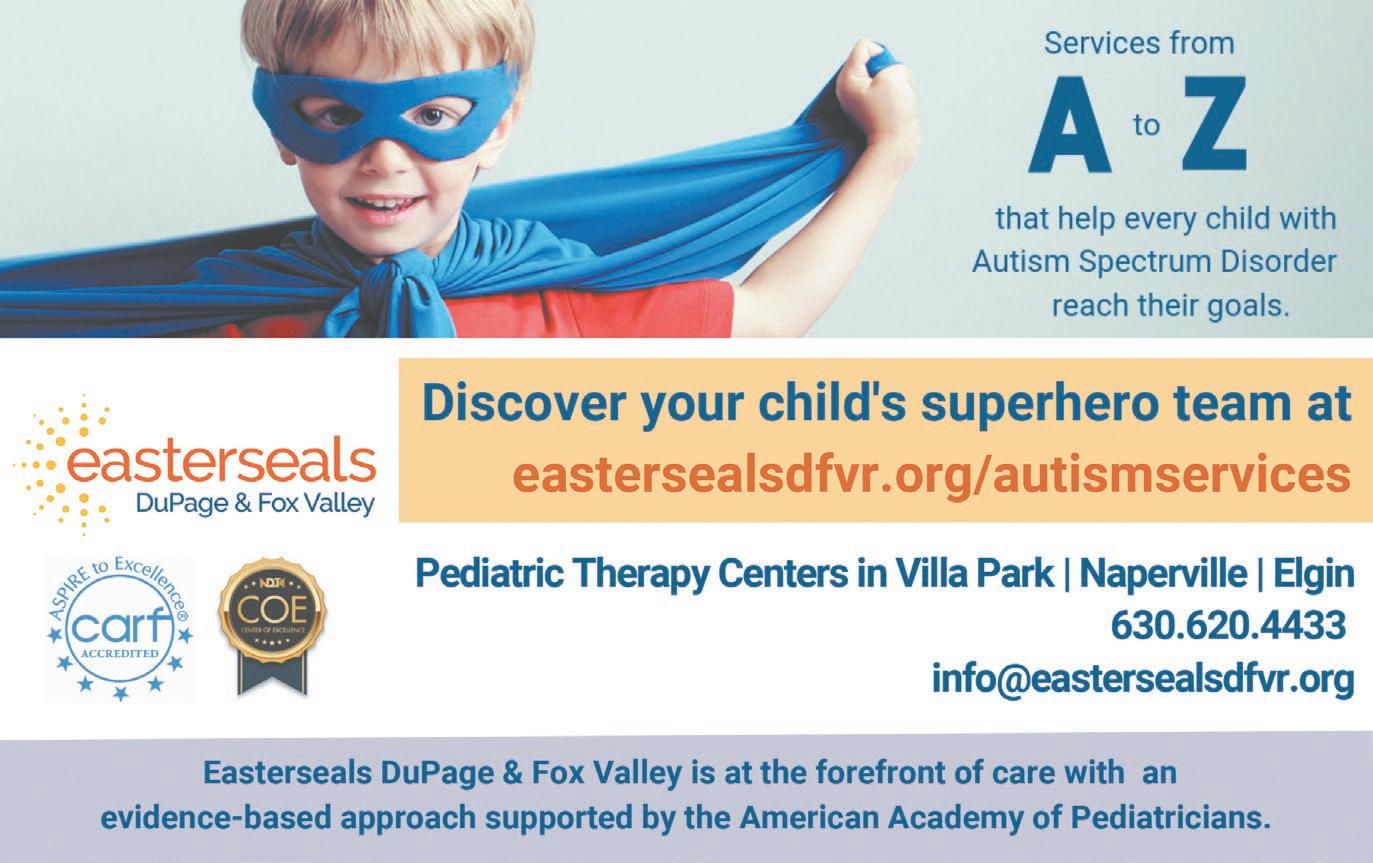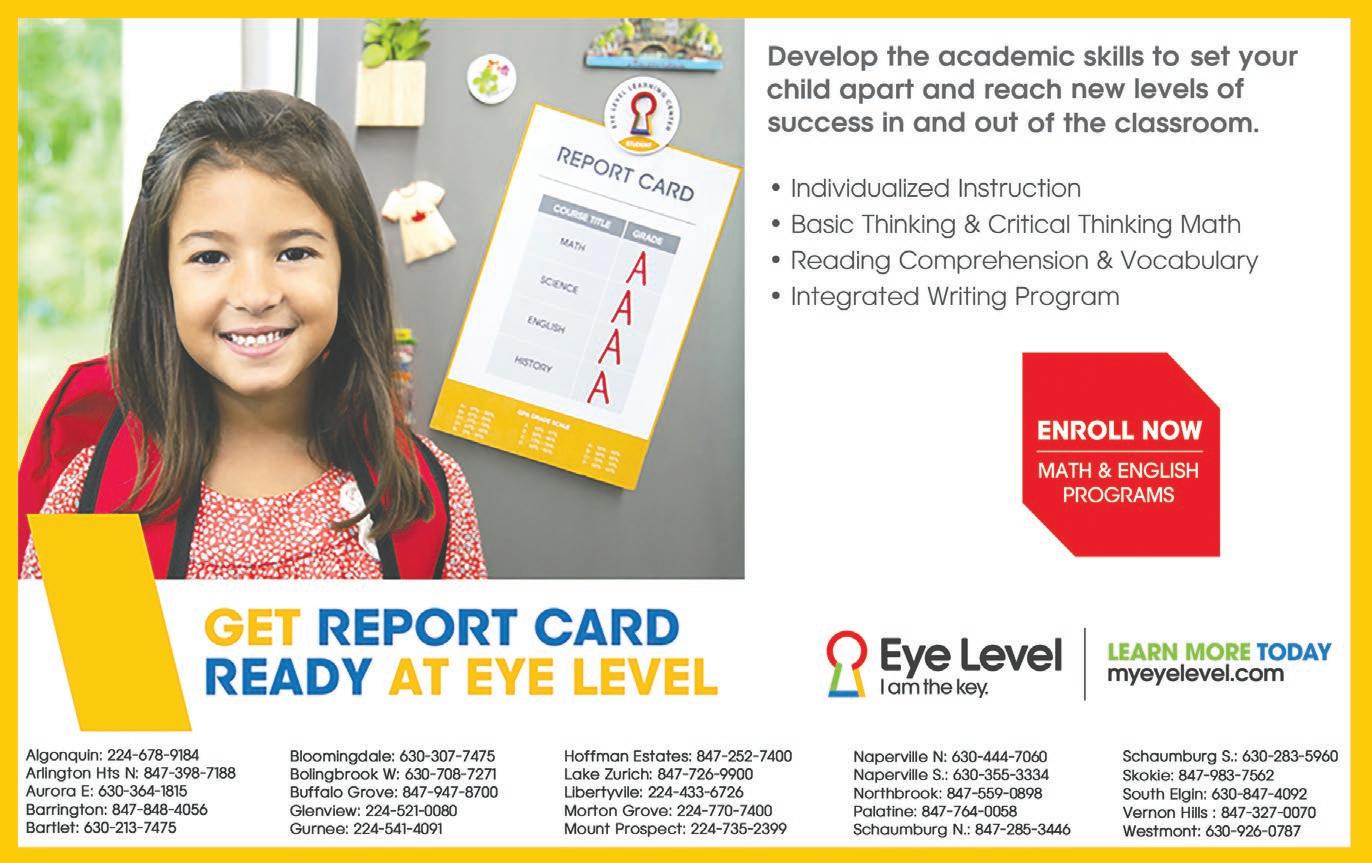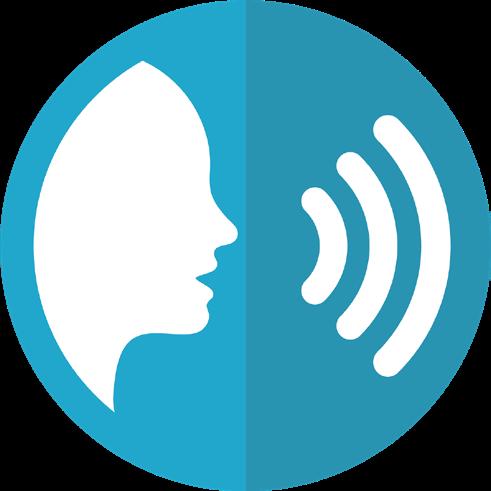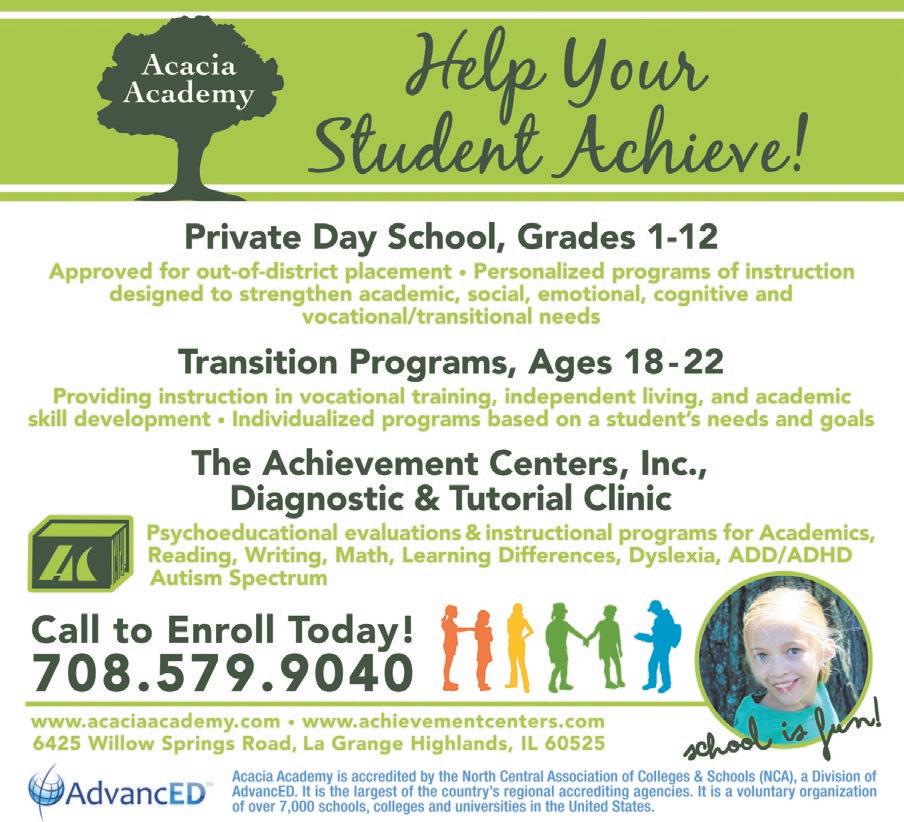
8 minute read
education central
education central SLPs Can Help With Autism Spectrum Disorder
Speech-language pathologists (SLPs) are well-versed in preventing, assessing, diagnosing, and treating speech, language, social communication, cognitive-communication, and swallowing disorders in both children and adults. SLPs are experts in social communication, which is one of the defining criteria for autism. While the average age of diagnosis for autism is 5 years or older, an SLP can make a reliable diagnosis in 24 months.
Advertisement
What Are Signs of Autism? Every child with autism is different. All will have problems with communication and social skills, but not in the same way. Autism is a spectrum disorder because it can cause mild problems, severe problems, or something in between. People with autism may focus on one topic or have some behaviors that they do over and over. Some may talk well but not be able to make friends, while others may not talk at all. A SLP can help navigate these differences.
How Can I Have My Child Assessed by an SLP? An SLP is instrumental in finding out if your child has autism or a social (pragmatic) communication disorder. SLPs are often available in school systems for support. All children with autism have social communication problems. But, not all children with these problems have autism. Knowing which one your child has will help the SLP find the best treatment. While being non-verbal is not considered a defining trait of autism, speech delay is often one of the first signs – and SLPs are best equipped to give an in-depth look at your child’s abilities. Given this expertise, an SLP may be the first person to tell you that your child has autism.
You Can Help Inform The Assessment Some of the most important information about your child will come from you. You can tell the SLP about what your child does well and where he or she has problems. The SLP will use different tests and watch how your child plays. The SLP may also want to talk to your child’s teacher or others who know about him or her.
With treatment, an SLP has the ability to help your child: • Make sounds and speak words • Improve articulation and intelligibility • Have conversations • Ask and answer questions • Ask for help • Take turns in a conversation • Start or stop a conversation • Pay attention to what others do and not just to what she wants to do • Play and get along with others • Understand and use gestures, like pointing • Follow directions • Look at books and tell stories • Write letters, words, and sentences
These developments can help your child to: • Make and keep friends • Play with others and share toys • Understand how others feel • Focus with someone on the same object or event, called joint attention • Accept new foods - children with autism may not like the way foods look, taste, or smell, but effective communication can reduce outside frustrations.
SLPs Can Help In Another Important Way If your child won’t talk, he could well need other means to communicate. SLPs are well trained in augmentative and alternative communication, or AAC, which help children who cannot talk or are very hard to understand. It can be used in a variety of settings: school, home, and other places. After working with an SLP, AAC may even help a child learn to talk.
Children with autism can learn better social and communications kills. SLPscanhelp. For further information on the signs of autism and how an SLP can help, please visit asha.org/ public/speech/disorders/autism


Know the Signs
Signs of common speech and language disorders in adults and children between birth to 4 years of age, an important stage in early detection of communication disorders.
Children: Signs of a Language Disorder Does not smile or interact with others (birth and older) Does not babble (4-7 months) Makes only a few sounds or gestures, like pointing (7-12 months) Does not understand what others say (7 months-2 years) Says only a few words (12-18 months) Words are not easily understood (18 months-2 years) Does not put words together to make sentences (1.5-3 years) Has trouble playing and talking with other children (2-3 years) Has trouble with early reading and writing skills* (2.5-3 years)
*Early reading and writing skills include: 8 months–1 year: Likes to hear you talk and read; looks at pictures in books when you read

1–2 years: Makes sounds or words when looking at pictures in books; points or touches pictures in books when you name them; turns pages in books
Acacia Academy Acacia Academy is a private therapeutic day school ages 6 – 22 for those with learning disabilities, emotional concerns, autism and intellectually challenged students who benefit from a personalized program designed to meet individual needs. Natural habitat and threeacre school Nature Center located on campus provides students with a unique outdoor experience and summer program. AdvancED accredited and approved by the Illinois State Board of Education for out-of-district placement. Transition programs and vocational services are available for ages 17-22. Kathryn Fouks, principal. 6425 Willow Springs Road, LaGrange, IL 60525. (708) 579-9040. info@acaciaacademy.com. www.AcaciaAcademy.com
Eye Level Learning Centers Eye Level Learning Centers offer math and English programs focused on developing each child’s critical thinking and analytical skills. Eye Level is based on an educational philosophy in which students learn at their own pace. Each student receives an individualized program based on their ability, independent of age and grade. Through a smallstep approach, students master foundational skills before advancing to complex topics, leading to increased interest and understanding of more challenging content. Eye Level’s programs nurture self-directed learners who take initiative, form goals, and identify solutions – empowering them to take ownership of their learning. To learn more, visit www.myeyelevel.com.
SEASPAR SEASPAR is a special recreation association offering therapeutic recreation programs and services – including Special Olympics training and a multi-sensory room – for people with disabilities served by the park districts of Clarendon Hills, Darien, Downers Grove, La Grange, La Grange Park, Lemont, Lisle, Westmont, and Woodridge, and the villages of Brookfield, Indian Head Park, and Western Springs. Visit SEASPAR.org or call 630.960.7600 for more information about our year-round programming for all ages and all abilities!
Shepherd’s Flock Child Care & Preschool Shepherd’s Flock is a newly remodeled Intergenerational Christian Child Care Center located on the campus of Lutheran Home. The center holds a Silver Circle of Quality through Excelerate Illinois which shows we are committed to quality improvement and excellence in education. We have several openings in our toddler and infant rooms. For more information or to schedule a tour please contact the Director, Jen Soukup at 847-368-7391 or our email at Jennifer.soukup@lulife.org.
Easterseals DuPage & Fox Valley Offering services from A to Z to meet the needs of each child with Autism Spectrum Disorder (ASD). At Easterseals, every child with ASD has an individualized therapy plan to help them reach their goals at home, school and in the community. Services include occupational, physical and speech-language therapies, behavioral and social work services, assistive technology and support for parents and siblings. Visit eastersealsdfvr.org/AutismServices for more information.
Shriners Hospitals Shriners Hospitals for Children® - Chicago improves the lives of children by providing pediatric specialty care, conducting innovative research, and offering outstanding educational programs for medical professionals. Children with orthopedic conditions, rehabilitation needs including spinal cord injuries, and plastic surgery needs including cleft lip and palate receive care, regardless of the families’ ability to pay. All care and services are provided in a compassionate, familycentered environment. For more information, please visit www.shrinerschicago.org or call 773-385-KIDS.
What Parents Can Do Listen and respond to your child Talk, read, and play with your child Talk with your child in the language you are most comfortable using Know it is good to teach your child to speak a second language Talk about what you are doing and what your child is doing Use a lot of different words with your child Use longer sentences as your child gets older Have your child play with other children

Children: Signs of a Speech Sound Disorder Says p, b, m, h, and w incorrectly in words (1-2 years) Says k, g, f, t, d, and n incorrectly in words (2-3 years) Produces speech that is unclear, even to familiar people (2-3 years)
What Parents Can Do Say the sounds correctly when you talk—it is okay if your child makes some mistakes with sounds Do not correct speech sounds—it is more important to let your child keep talking
Children Signs of Stuttering (Disfluency) Repeats first sounds of words—“b-b-b-ball” for “ball” Speech breaks while trying to say a word— “—–boy” for “boy” Stretches sounds out—“ffffff-farm” for “farm” Shows frustration when trying to get words out
What Parents Can Do Give your child time to talk Do not interrupt, stop, or tell your child to slow down while they are speaking See a certified speech-language pathologist if you are concerned

Children: Signs of a Voice Disorder Loss of voice Uses a hoarse or breathy voice Speaks with strain and effort
What Parents Can Do See a doctor if your child sounds hoarse or breathy Tell your child to avoid shouting and screaming Drink water throughout the day Include quiet time/voice rest during the day
A licensed intergenerational child care center, on the campus of Lutheran Home in Arlington Heights, offers your child a total program for the mind, body, and spirit.
(847) 368-7391 | ShepherdsFlock.org









